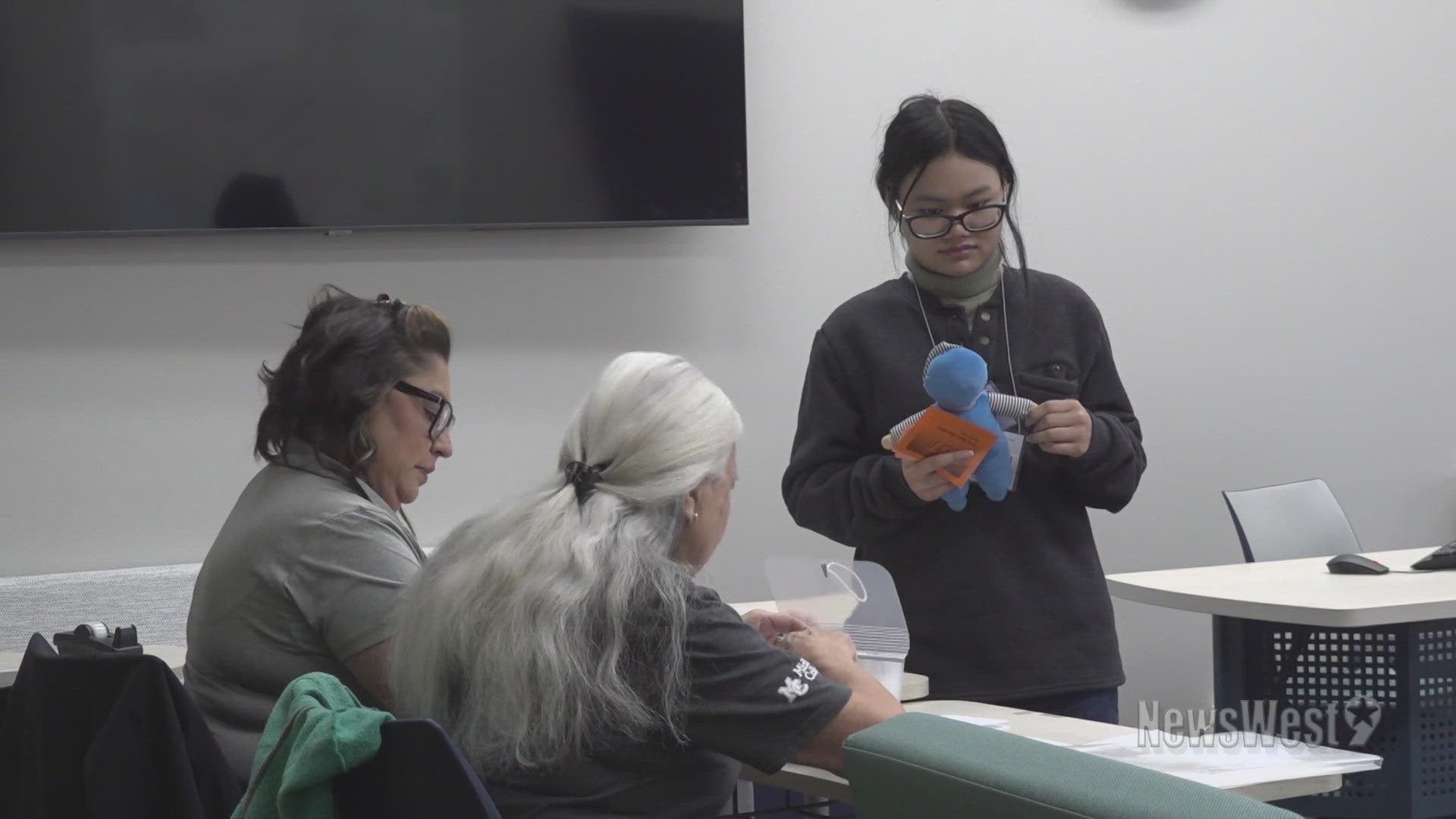MIDLAND, Texas —
Midland College held a poverty simulation on campus Friday for students interested in the healthcare field. This simulation provided an excellent opportunity for these students to learn more about the industry and the different backgrounds they may come across.
These nursing and primary care pathway students aren’t playing pretend or supposed to be having a competition but instead are gaining valuable experience that will help them later in their careers.
“So, the poverty sim is a simulation that is teaching our students about the disparities in the communities that they could possibly serve in. So, if you see behind us, there is the chair set ups for the families and their real-life scenarios. Of course, the names have been changed and they have to make it through 4 weeks and what we call a week, it's 15 minutes and these individuals either are grandfather raising their grandkids or it could be a teenager whose parents are in prison and he's raising his siblings and they have to go to work, pay bills, get groceries," said Shawna Lopez, Associate Director of the Primary Care Pathway program at Midland College.
“So our town is called Reality Ville and it includes businesses that are representing those businesses that you would see in a community that could provide resources for people that may be in poverty and the purpose of the town is for our participants to move through and try to navigate the various resources without being told exactly what those resources are and see if they can navigate the various resources to assist them through their situations. So, this training is providing real world example practical application of community members that are often overlooked,” said Joey Shankman, Director of the Primary Care Pathway program at Midland College.
Shankman says empathy is something that while you can learn the definition of and know the word, you can’t teach it in a classroom.
“With the population of students today being primarily healthcare-oriented students, this is going to be a representation of those community members that they're going to be serving directly and so this instills that empathy directly by literally putting the students in a person's shoes who is in poverty,” Shankman continued.
They know that while the simulation may not be a one-to-one experience, it’s proven to be an effective tool in educating the next generation of healthcare workers.
“Unless you're living in this situation in poverty, you really don't know what it's like, and this will probably be the closest thing that a student can experience for somebody who's living in poverty without themselves being in it,” Shankman added.

